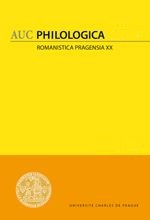Fusca sum et decora. The influence of Tyconius on Augustine’s teaching of the ecclesia permixta
Fusca sum et decora. The influence of Tyconius on Augustine’s teaching of the ecclesia permixta
Author(s): Marcela AndokováSubject(s): Language and Literature Studies
Published by: Univerzita Karlova v Praze, Nakladatelství Karolinum
Keywords: Tyconius; The Book of Rules; biblical hermeneutics; Saint Augustine; ecclesia permixta; ecclesiastical tolerance; the Donatist Church
Summary/Abstract: The verse from the Song of Songs, “I am black and beautiful”, quoted by Tyconius in the Rule II of his work Liber regularum, represents a famous passage considered a characteristic of his concept of the bipartite church. The African Donatist lay theologian became famous mostly for his seven rules of the interpretation of Scriptures as well as for his arduous critique of the Donatists who denied the universality of the church and limited her exclusively to the territory of North Africa. The aim of the present article is to analyse to which extent Augustine had got use of Tyconius’s book in the period of his polemic with the Donatists, and whether its reading could, eventually, have stood at the origin of his choice of biblical texts, the ones he commented on as a preacher between the years 406–407. In the selected texts I have observed a certain predilection for a particular set of scriptural quotations used both as an argument and as an illustration to support Augustine’s and Tyconius’s thought concerning the universality of the church. Despite the fact that we have no direct proofs about the inspiration sources of Augustine’s anti-Donatist preaching between the years 406–407, the similarities in the use of scriptural citations used by both authors show that Tyconius’s Book of Rules might have stood at the origin of Augustine’s inspiration and argumentation. However, it does not prove a direct influence of Tyconius on Augustine’s teaching on the ecclesia permixta and on the ecclesiastical tolerance since the bishop of Hippo, unlike Tyconius, does not see the church as a twofold body, rather he understands it as a mixture in which the good and the bad are in time mixed in together.
Journal: Acta Universitatis Carolinae Philologica
- Issue Year: 2015
- Issue No: 2
- Page Range: 61-76
- Page Count: 16

